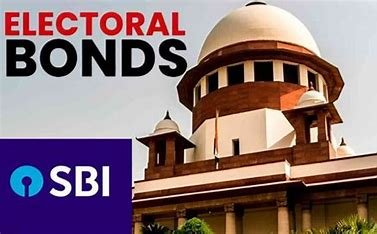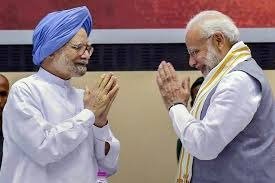By our legal Correspondent
New Del, March 12 (IVC) The dismissal of the State Bank of India (SIB) application for time till the end of June 30 by the Supreme Court here yesterday for providing details of electoral bonds was a shot in the arm of democracy not only in India but the world over.
A five-judge Bench headed by the Chief justice of India D Y Chandrachud here on Feb 15, struck down the electoral bonds as unconstitutional and gave the bank yesterday 24 hours, that is close of business hours on March 12 , to provide the details of the electoral bonds to the Election Commission of India while dismissing the application of the SBI on March 11.
The decision of court was also described a slap in the face of the SBI when court asked when for the last 26 the Bank and what was doing it so far.
The Counsel for the SBI, Senior Advocate Harish Salve held that the matching the bonds purchased and the names of the donors with the parties which redeemed the bonds was a time consuming and complex exercise. The Chief Justice Chandrachud said that the judgment on Feb 15 had not asked the bank to “match” information to ascertain contributions and political parties .
“We had only asked you to do a plain disclosure. We just wanted you to comply with the judgment of Feb 15. It was very clear from the application of the SBI and its argument in the apex court that its plea would be dismissed at threshold itself as the match put forward by the bank was non est and a slap-stick.
It was clear that the application of SBI was due to external pressure on it. The Chief Justice in his judgment of Feb 15 written for himself and justices Gavai, Pardiwala and Misra held that the electoral bonds violated Article 19 (1) of the Constitution
And pointed out “information about funding of political parties is essential for the effective exercise of the choice of voting”.
The supreme Court had also struck down amendments to the Income Tax Act and representation of people Act which made the donations anonymous. The Court also said that the amendment to the Companies Act that allowing blanket corporate funding was unconstitutional.
Before the amendment to the Companies Act in 2017, loss-making companies were not allowed to contribute to political parties.
The act of the SBI for seeking time for providing details of the electoral was based on a non est issue which the judgment had not asked. It was clear that the SBI did not want to divulge the details of the electoral bonds, as directed by the apex court, before the completion of elections to the 18th Lok Sabha.
Under the circumstances , it was clear that the SBI acted as a proxy to the Union Government in spite of the court’s directive. A huge amount of unaccounted money as being spent by the corporates in the elections and with the strength of their contribution , the corporate exert their pressure in the ruling party’s policies which was not good for the healthy democracy.
According to media reports, almost 60 per cent of the funds received by the political parties cannot be traced and come from unknown sources including electoral bonds. Between the financial years 2004-2005 and 2022-23 , the country’s six national parties collected Rs 19,083.08 crores from unknown sources.





